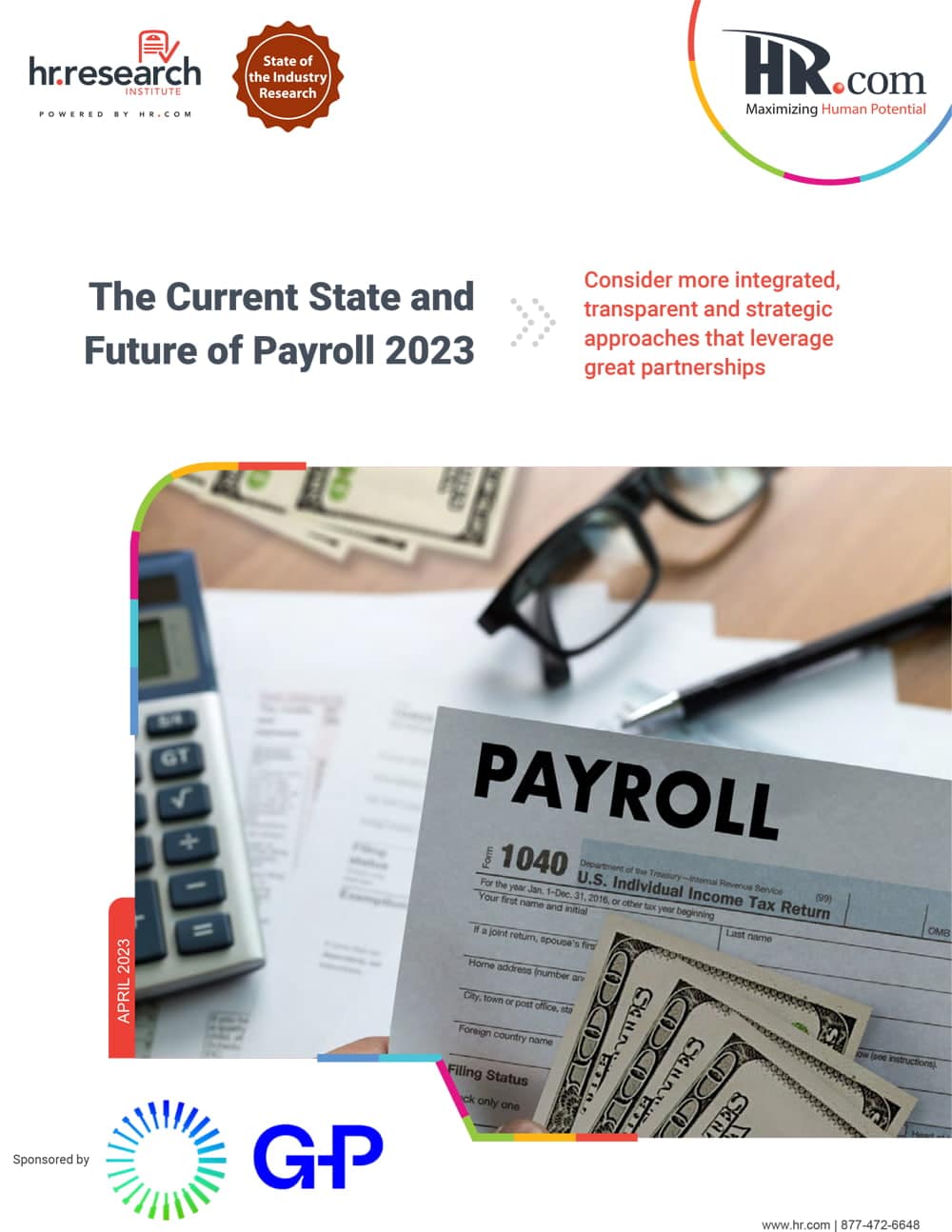薪資對員工體驗有極大的影響。 除了期望及時、公平和公正地支付薪資外,員工越來越多地期望修改,例如每日薪資、薪資透明度,以及更好地存取其薪資資訊。 此外,組織必須努力跟上通貨膨脹率,這為許多員工帶來額外的財務壓力,並遵守他們僱用員工的地區薪資相關法律和法規。
這項研究顯示,許多組織都在努力迎接當下。 不到半數的組織對其提升員工薪資體驗的能力充滿信心,不到五分之二的組織對自己跟上經濟趨勢的能力充滿信心。
在本報告中,我們深入探討薪資系統目前的狀態,以及將塑造此功能的未來趨勢。 具體而言,我們討論:
- 組織將其薪資職能視為策略或行政的程度
- 組織對其薪資職能實現組織目標的能力有多少信心
- 薪資策略和流程面臨的常見挑戰
- 組織用於制定競爭和公平薪酬策略的方法
- 組織如何處理薪資透明度和支付全球分散的員工
- 公司如何評價其遵守工資、工時和稅務政策與法規的能力
- 技術與自動化程度在薪資發放中的角色
- 影響薪資的未來趨勢
- 對薪資發放採取更策略性方法的組織與不採取
下載此報告以瞭解更多資訊。







